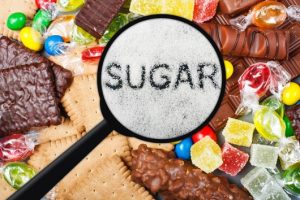Introduction
For individuals with diabetes, managing sugar intake is pivotal in maintaining blood sugar levels and overall well-being. This article delves into the recommended daily sugar limits, encompassing both added and natural sugars, to help individuals with diabetes make informed dietary choices and take control of their health.
Understanding Sugar: The Basics
Sugars come in two primary forms: natural sugars, which are intrinsic to foods like fruits and dairy, and added sugars, which are incorporated into processed foods and beverages. Both can influence blood sugar levels, making it crucial for individuals with diabetes to monitor their intake.

The Role of Carbohydrates
Carbohydrates are a fundamental component of our diet, and they can be found in various foods. When consumed, carbohydrates are broken down into sugars (glucose) in the body, which has a direct impact on blood sugar levels.
General Sugar Guidelines for Diabetics
- Added Sugars: Added sugars are those incorporated into foods and beverages during processing or preparation. The American Heart Association recommends limiting added sugar intake to no more than 25 grams (around 6 teaspoons) per day for women and 36 grams (about 9 teaspoons) per day for men.
- Natural Sugars: Natural sugars, found in fruits, vegetables, and dairy products, are less concerning for diabetics. While there isn’t a strict daily limit, portion control is essential. Incorporating a variety of whole foods and monitoring blood sugar responses can help individuals determine their tolerance for natural sugars.
Customizing Sugar Limits
It’s important to note that individual responses to sugar can vary. Factors such as age, activity level, and the type and severity of diabetes play a role in determining the ideal sugar limits for each person.
Managing Blood Sugar with Glycemic Index
The glycemic index (GI) measures how quickly carbohydrates in foods raise blood sugar levels. Foods with a high GI cause a rapid spike in blood sugar, which can be a concern for individuals with diabetes. Monitoring the GI of foods can be helpful in maintaining stable blood sugar.
Consulting a Dietitian
A registered dietitian specializing in diabetes can be an invaluable resource for individuals seeking personalized guidance. They can help develop tailored meal plans, monitor carbohydrate intake, and navigate the world of added and natural sugars.
Meal Planning Strategies
To adhere to recommended sugar limits, consider these meal planning strategies:
- Fiber: Focus on high-fiber foods like whole grains, legumes, and vegetables, which can help stabilize blood sugar levels.
- Balanced Meals: Create balanced meals by combining carbohydrates with lean proteins and healthy fats.
- Regular Monitoring: Regular blood sugar monitoring, both before and after meals, can help you gauge how different foods affect your body.
- Portion Control: Be mindful of portion sizes, especially when consuming foods with natural sugars.
Sugar Limits in Practice
Here’s a practical example of sugar limits in a day for an individual with diabetes:
- Breakfast: A serving of oatmeal with fresh berries, which contain natural sugars, and no added sugar. Total sugar intake: natural sugars from the berries.
- Lunch: A salad with leafy greens, lean protein, and a vinaigrette dressing. Total sugar intake: minimal, primarily from vegetables and dressing.
- Snack: Greek yogurt with a drizzle of honey (natural sugar). Total sugar intake: honey and natural sugars in yogurt.
- Dinner: Grilled chicken breast, quinoa, and steamed vegetables. Total sugar intake: minimal.
- Snack: A handful of almonds (no added sugar). Total sugar intake: none.
https://img.sugarprotalk.com/wp-content/uploads/how-to-keep-your-sugar-levels-stable-when-you-have-type-2-diabetes-yours.jpeg
Conclusion
Understanding and adhering to recommended sugar limits is a fundamental aspect of diabetes management. By limiting added sugars, monitoring natural sugar intake, and customizing these limits based on individual needs, individuals with diabetes can take control of their health and maintain stable blood sugar levels. Consulting with healthcare professionals, especially registered dietitians, can provide tailored guidance for achieving these goals. Diabetes management is a journey, and finding the right balance of sugars is a significant step towards a healthier and more fulfilling life.





